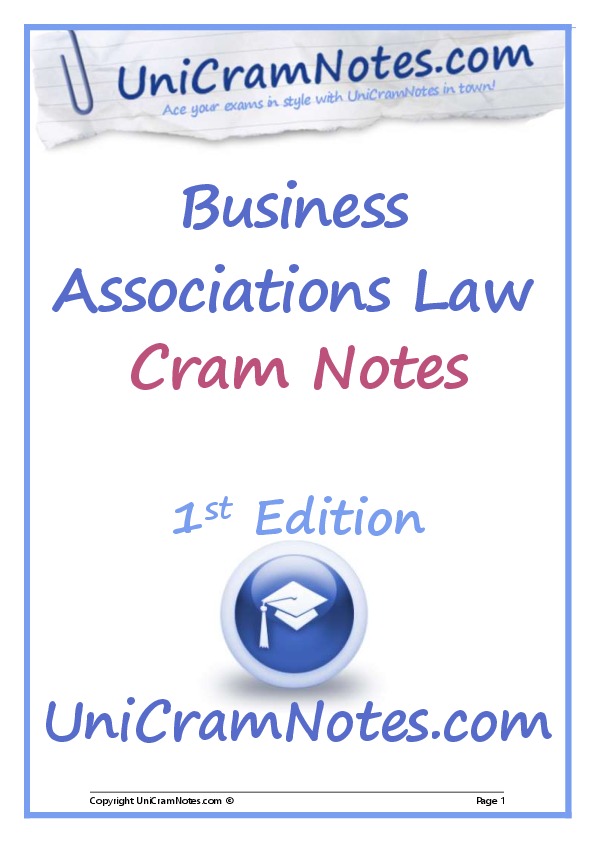ii. WAS THERE ADEQUATE DISCLOSURE OF A MATERIAL PERSONAL INTEREST? Imperial v Coleman – The director must state and identify the actual interest they have, rather than a blank statement that they have an interest in the transaction. Gray v Porcupine Mines – Facts: Gray kept poor records of his dealings conducted for the company, and company funds were often intermingled with his own. The directors agreed not to sue him pursuant to a release agreement with Gray, although the directors were not entirely aware of the true and full position of Gray’s misconduct and misappropriation of company funds. Gray had only revealed a portion of his misconduct. – As the release was singularly favourable to Gray, only he knew how much he had appropriated. – Thus, in such a case, full disclosure was required. He must make his fellow directors fully informed of the real state of things. iii. WERE STATUTORY DISCLOSURE OBLIGATIONS SATISFIED? Under s 191, directors are required to formally disclose to the Board (for record in the Board’s minutes) the nature and extent (s 191(3)) of any material personal interest in a matter that relates to the affairs of the company. However, breach of s 191 does not invalidate the transaction (s 191(4)). Rather, it is a breach of s 1311, with the Schedule 3, Item 32 penalty being 10 penalty units or 3 months jail, or both. Note also that s 193 provides that s 191 does not displace the common law, i.e. the common law disclosure obligations still apply.
The most concise and updated Business Associations, Corporations Law and Business Organisations Study Notes for Australian Law Students.
Does not include Model Exams and Model Exam Answers.
(Click here to purchase the Notes & Model Exam Answers)
Approximately 22298 words over 43 pages. Prepared in 2025.










